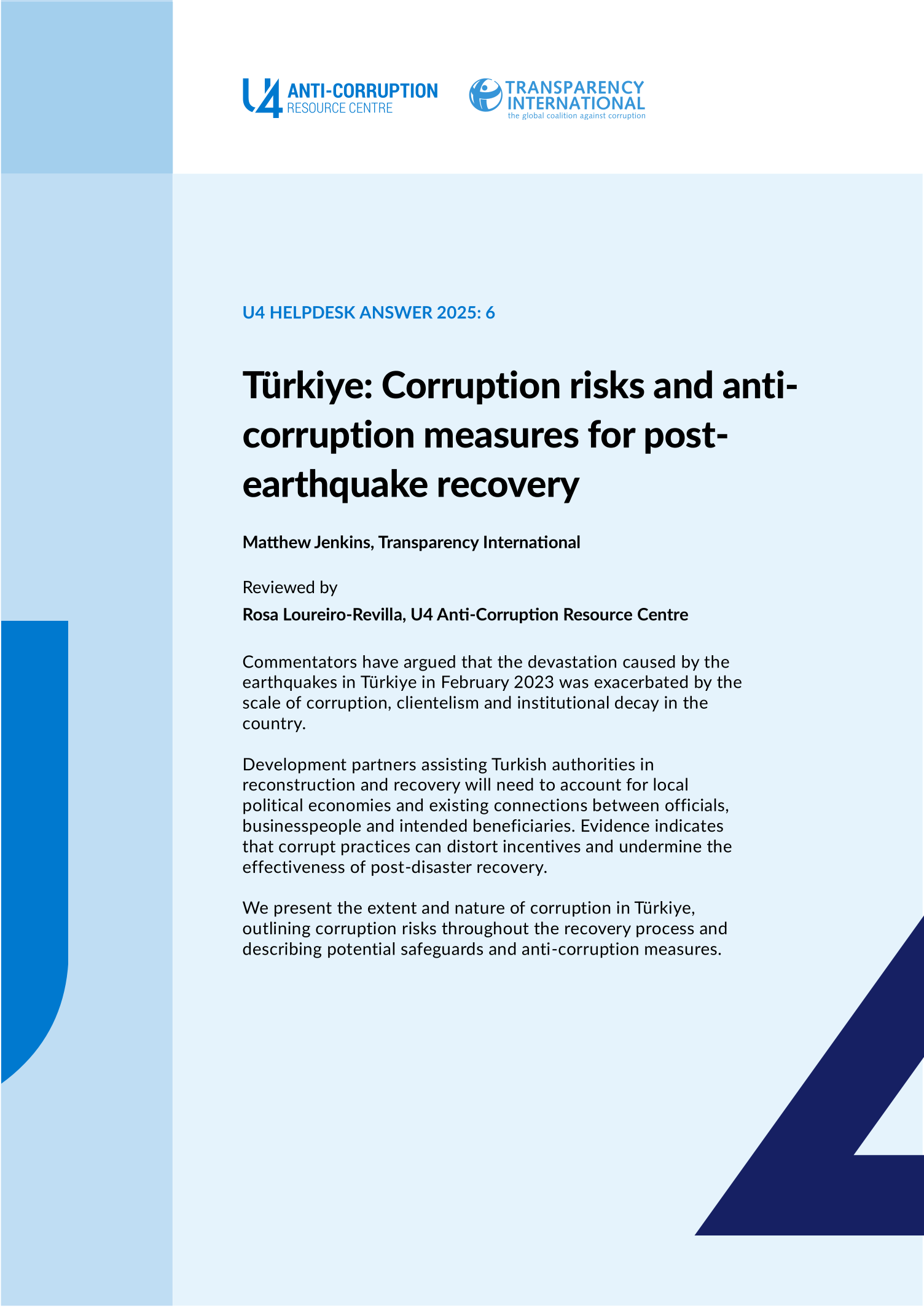Main points
- Reconstruction and recovery efforts after natural disasters are vulnerable to corruption due to the influx of financial resources, weakened capacity of local institutions, pressure on government to act swiftly and greater government discretion due to the adoption of emergency powers and the loosening of standard fiduciary safeguards.
- The Turkish state is characterised by a high degree of centralisation, with the relationship between central and local government is viewed by observers as paternalistic and authoritarian.
- Clientelism is a feature of political culture, and it is especially pronounced in procurement processes in sectors relevant to post-earthquake recovery, such as construction, transport, real estate and utilities.
- Local government presents a high risk of corruption, with external audits consistently pointing to a large number of irregularities relating to bookkeeping, public procurement and management of municipal real estate.
- At the planning stage, recovery programmes risk being captured by special interests and designed in a way that reinforces underlying patron-client relationships.
- During the targeting stage, local authorities and community leaders may attempt to influence allocation criteria and distribution patterns for political reasons, which may lead to certain population groups being underserved.
- During the procurement stage, the suspension of standard safeguards after an emergency makes it easier to direct lucrative contracts to politically connected firms.
- At the service delivery stage, natural disasters can deepen power asymmetries between public officials and affected communities, heightening risks of embezzlement and demands for bribes or sexual acts in exchange for access to much-needed goods and services.
- It is important that lines of accountability are established between all agencies involved in relief efforts, deviations from standard procedures are well documented (particularly in procurement) and robust ex-post audits are conducted.
- While recovery efforts are primarily led by state actors, research highlights the importance of including local communities in these projects. Drawing on local knowledge is usually associated with better results, while heightened downward accountability, especially through community monitoring, can act as an anti-corruption measure in itself.
- Post-disaster recovery can present an opportunity to reconfigure municipal services to better serve the needs of disadvantaged communities.


